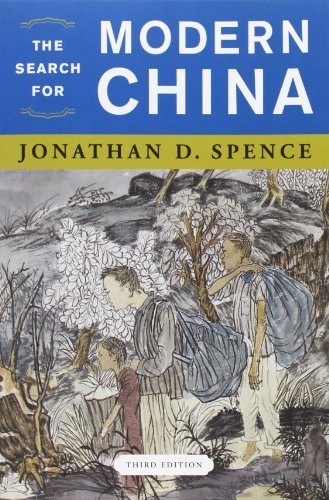
1
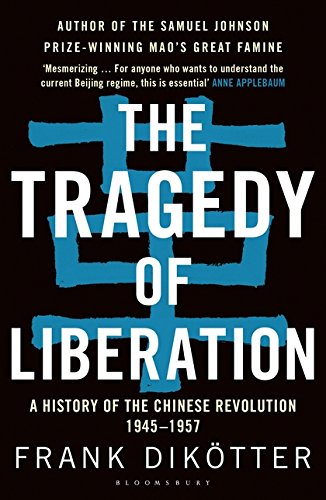
2
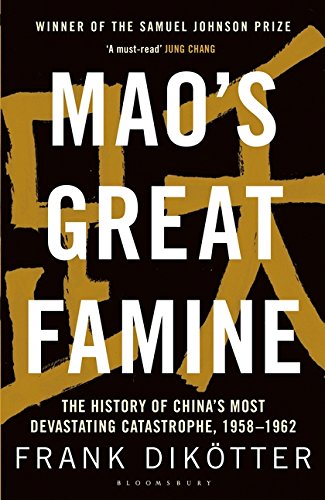
3
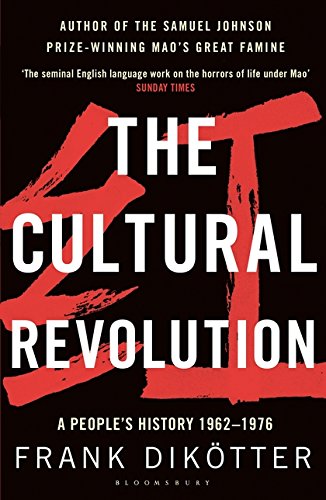
4
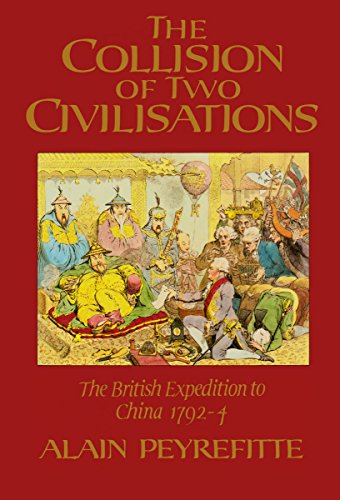
5
For an increasingly important and powerful nation, China and its history seem to be relatively unknown to most people. The books on my list are a mix of good books as an introduction to this period in history and another one that I simply found very interesting. The knowledge of how China went from the most powerful nation in the world, to then be surpassed and suppressed by Western nations, then to communism following republicanism, and finally taking back its place as a world power is both interesting and necessary to understanding the state of the modern world.
1
This was the first book I read on Chinese history and it gave a comprehensive and clear understanding of the late Ming to the present. It follows Chinese history from the fall of the Ming dynasty (famous for the current state of the Great Wall of China) and how rebellions, natural disaster, corruption, led to the end of a once great dynasty. Then came the Qing dynasty. The Manchus from the North who came to control China, adopting traditional culture and customs while never fully integrating with the majority Han population. Finally came the stages of Republicanism and Communism leading to the present. While it will take a lot of time to read, it is always rewarding. The history itself is so engaging that it will leave you wanting to find out what happens next. For anyone who doesn't really know where to start with some spare time, there is no better way to get acquainted with modern China.
2
This book is the first in a trilogy that I am recommending. Each book focuses on a different part of the Communist history of China. This obviously starts with how the communists came to take over China and established themselves. It gives clear reasons as to why the population of China accepted a regime that would later kill millions and how Mao was able to establish himself as China's ruler. It also shows the brutality of Mao, in which a form of communism was applied to a society in which there were no clear landlords supressing the masses. Much of the book shows previously unknown details and ideas, from ordinary peoples accouts to new details of the higher levels of communist China all the way up to Mao. For a deatailed, engaging, and often tragic account of how Communist China came about this is essential reading.
3
Most people know about the Holocaust. Some know about the famines of the Soviet Union. Less know about the Great Chinese Famine, despite it perhaps being the most devastating man-made catastrophe in the history of the world (in terms of numbers of deaths). Dikotter uses new information and estimates to show that the Famine could have led to around 60 million deaths; more than the population of the UK at the time. This book shows the causes of the famine mainly placing the blame on incompetent and uncaring leadership, showing the dangers of a regime in which false statistics are more important than the people's lives. Of course, such a massive failure had consequences and Mao's power was diminished as a consequence. Ultimately, this is an essential read showing a relatively unknown but extremely important tragedy in modern Chinese history.
4
The last book in this series by Dikotter shows the last years of Mao's reign. It is at first hard to get ones head the complete breakdown in society that Mao's Cultural Revolution created. This was much more than school children gaining some power. This was an attempt to completely destroy the current system of governance in the country, leading to conflict not seen since WW2 and the Civil War. The inhuman treatment of people based on their background shows the moral depravity that we can all so easily fall into. The unrestrained destruction of Chinese history and culture was almost unparalleled. Reading this is key to understanding modern China and how the reformers like Deng Xiaoping tried to make sure that this could never happen again, while also trying to retain power in the face of broken government, a population that was quietly reverting back more capitalist practices and loudly opposing communism and supporting freedom.
5
If you're now fed up of reading conventional history books, or are already knowledgeable of Chinese history/ have read all the books on this list then this may be for you. It shows the British expedition to Qing China which ultimately ended in failure, however, is extremely useful for framing later Anglo-Sino relations. This book also applies its limited sources to great effect. The letters between the Emporer and his ministers show how the responses to English requests were decided before they already arrived, and often the diary of a young child gives us a more accurate picture of what really happened than the notes from the leader of the expedition. It also shows a missed opportunity. When two countries that see themselves as the most powerful, cultured, and important nations in the world had to deal with each other there was the possibility of mutual benefit however it ended in opposition and eventually war.

1
This was the first book I read on Chinese history and it gave a comprehensive and clear understanding of the late Ming to the present. It follows Chinese history from the fall of the Ming dynasty (famous for the current state of the Great Wall of China) and how rebellions, natural disaster, corruption, led to the end of a once great dynasty. Then came the Qing dynasty. The Manchus from the North who came to control China, adopting traditional culture and customs while never fully integrating with the majority Han population. Finally came the stages of Republicanism and Communism leading to the present. While it will take a lot of time to read, it is always rewarding. The history itself is so engaging that it will leave you wanting to find out what happens next. For anyone who doesn't really know where to start with some spare time, there is no better way to get acquainted with modern China.

2
This book is the first in a trilogy that I am recommending. Each book focuses on a different part of the Communist history of China. This obviously starts with how the communists came to take over China and established themselves. It gives clear reasons as to why the population of China accepted a regime that would later kill millions and how Mao was able to establish himself as China's ruler. It also shows the brutality of Mao, in which a form of communism was applied to a society in which there were no clear landlords supressing the masses. Much of the book shows previously unknown details and ideas, from ordinary peoples accouts to new details of the higher levels of communist China all the way up to Mao. For a deatailed, engaging, and often tragic account of how Communist China came about this is essential reading.

3
Most people know about the Holocaust. Some know about the famines of the Soviet Union. Less know about the Great Chinese Famine, despite it perhaps being the most devastating man-made catastrophe in the history of the world (in terms of numbers of deaths). Dikotter uses new information and estimates to show that the Famine could have led to around 60 million deaths; more than the population of the UK at the time. This book shows the causes of the famine mainly placing the blame on incompetent and uncaring leadership, showing the dangers of a regime in which false statistics are more important than the people's lives. Of course, such a massive failure had consequences and Mao's power was diminished as a consequence. Ultimately, this is an essential read showing a relatively unknown but extremely important tragedy in modern Chinese history.

4
The last book in this series by Dikotter shows the last years of Mao's reign. It is at first hard to get ones head the complete breakdown in society that Mao's Cultural Revolution created. This was much more than school children gaining some power. This was an attempt to completely destroy the current system of governance in the country, leading to conflict not seen since WW2 and the Civil War. The inhuman treatment of people based on their background shows the moral depravity that we can all so easily fall into. The unrestrained destruction of Chinese history and culture was almost unparalleled. Reading this is key to understanding modern China and how the reformers like Deng Xiaoping tried to make sure that this could never happen again, while also trying to retain power in the face of broken government, a population that was quietly reverting back more capitalist practices and loudly opposing communism and supporting freedom.

5
If you're now fed up of reading conventional history books, or are already knowledgeable of Chinese history/ have read all the books on this list then this may be for you. It shows the British expedition to Qing China which ultimately ended in failure, however, is extremely useful for framing later Anglo-Sino relations. This book also applies its limited sources to great effect. The letters between the Emporer and his ministers show how the responses to English requests were decided before they already arrived, and often the diary of a young child gives us a more accurate picture of what really happened than the notes from the leader of the expedition. It also shows a missed opportunity. When two countries that see themselves as the most powerful, cultured, and important nations in the world had to deal with each other there was the possibility of mutual benefit however it ended in opposition and eventually war.
© Five Books 2026